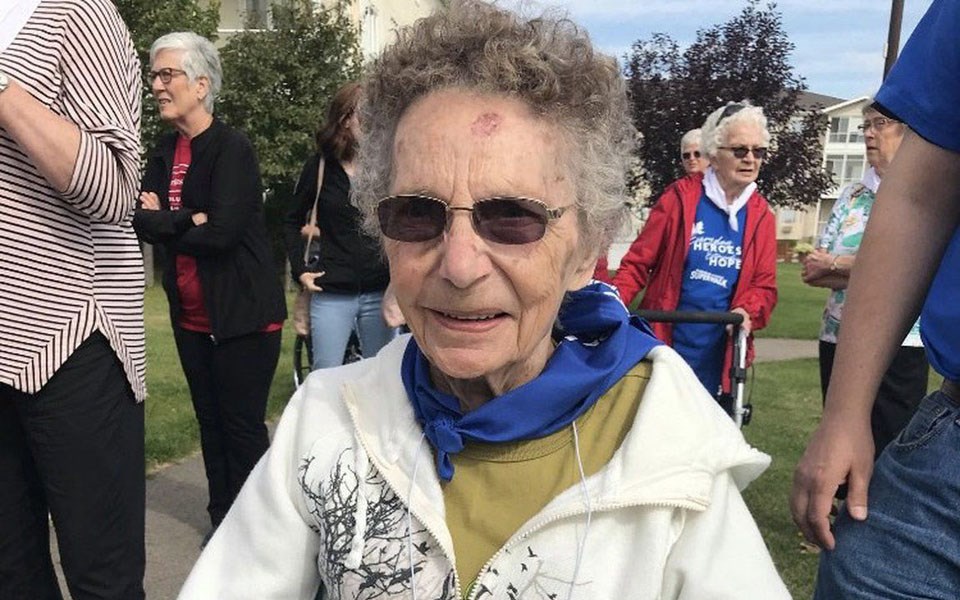SHAUNAVON — Around the world, April is Parkinson's Awareness Month, and April 11 marks World Parkinson's Day. This month also holds personal significance for me, as it marks the third anniversary of my mother Leona Modien's passing due to this disease.
I've decided to use this opportunity to discuss Parkinson's disease.
Parkinson's disease is a devastating illness that slowly steals away the person we once knew. This neurodegenerative disease, which mainly affects the central nervous system, impacts both motor and non-motor skills. It causes tremors, difficulty maintaining balance, and many other issues.
Non-motor symptoms often develop later in the disease and can include postural instability, neuropsychiatric problems, sleep abnormalities, psychosis, and mood swings.
Every day in Canada, 18 more people learn they have Parkinson's disease. By the end of April, over 550 more individuals will receive this diagnosis. In total, Parkinson's affects more than 110,000 people across Canada and millions worldwide. Unfortunately, it's believed that many cases go unreported.
Parkinson's disease is complex and evolves, making it challenging for researchers to study. While everyone loses cells as we age, including brain cells, people with Parkinson's experience a more rapid loss of brain cells that produce dopamine, a chemical that helps regulate movement. This neurodegeneration is tied to both motor and non-motor symptoms of Parkinson's.
The motor symptoms of Parkinson's include slowness of movement, rigidity, tremor, and postural instability. Non-motor symptoms can vary substantially from patient to patient and may include:
• Drooling
• Changes in taste and smell
• Choking and swallowing difficulties
• Nausea and vomiting
• Constipation
• Uncontrolled loss of stool
• Bladder dysfunction
• Unexplained changes in weight
• Dementia and cognitive impairment
• Hallucinations
• Sexual dysfunction
• Orthostatic hypotension
• Excessive daytime sleepiness
• Insomnia
• REM sleep behavior disorder
• Restless leg syndrome
• Leg swelling
• Excessive sweating
• Double vision
• Delusions and impulse control disorders
Depression is one of the most common and disabling non-motor symptoms of Parkinson's, affecting up to 50% of people with the disease at some stage.
While there is no cure, with proper medical care, support systems, education, and services, many people with Parkinson's disease can live a full and active life.
I was unable to find any information about a Parkinson's support group in the Southwest/Swift Current region of Saskatchewan, which was once active when my mother was a member about 8 years ago. Therefore, it is thought to be no longer active. I was directed by Parkinson Canada to Jeannine Alain, Chair of the team leading the Saskatoon Parkinson's disease support group.
After being diagnosed over 10 years ago, Jeannine remains active both within the group and outside. With some newer developments in medicine, she stresses the importance of staying active with regular physical exercise, which can slow down the disease's progression, thanks to help from the Michael J. Fox Foundation.
Jeannine recommends visiting the website www.pdavengers.com. She believes that if people make enough noise, researchers can secure adequate funding to eradicate diseases like Parkinson's, similar to how polio has become largely obsolete.
She also mentioned that April 11 is Blue Light Day, where people can show their support by displaying a blue light at their residence or workplace, bringing more attention to the disease.
This April, during Parkinson's Awareness Month, take the time to become more knowledgeable about Parkinson's disease. Learn, understand, and get involved in your community, especially if there isn't a support group in your area. Celebrate the stories and courage of people living with Parkinson's, their care partners, and remember those who have passed away. Let's work together to make Parkinson's disease a thing of the past.
For more information about Parkinson's disease, contact 1-888-664-1974 or [email protected].




